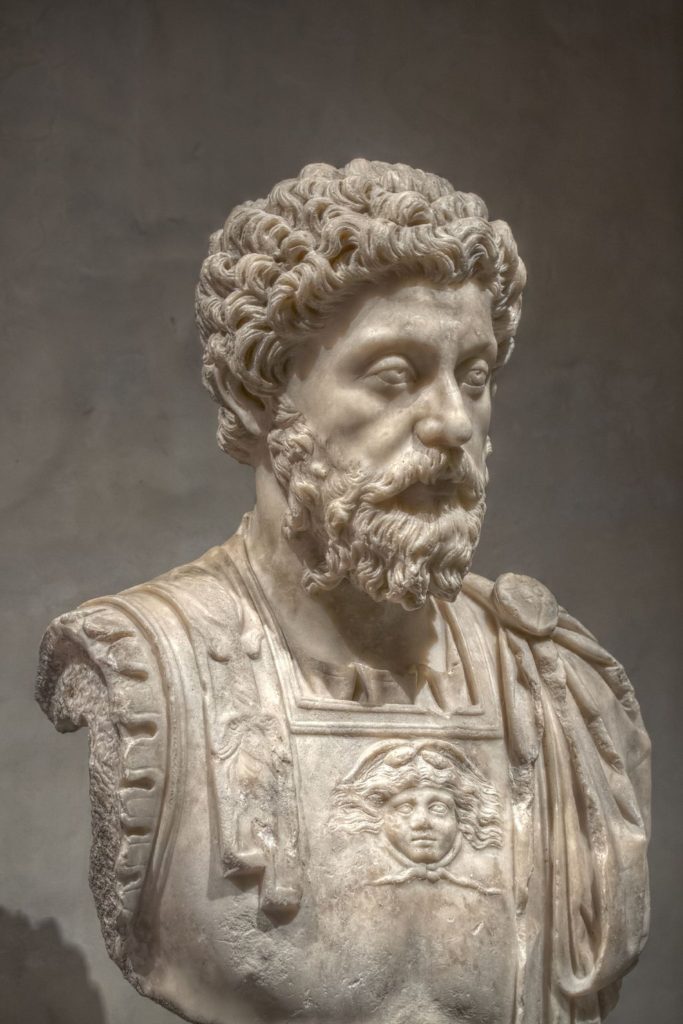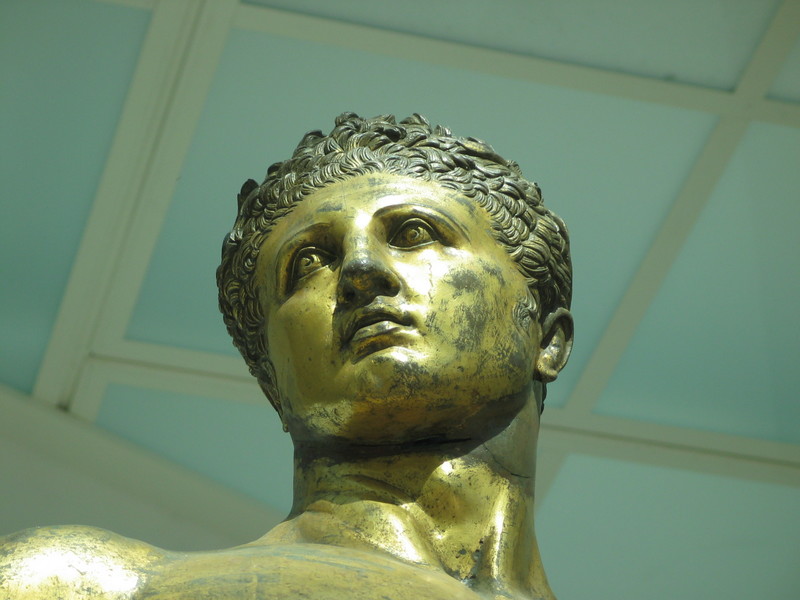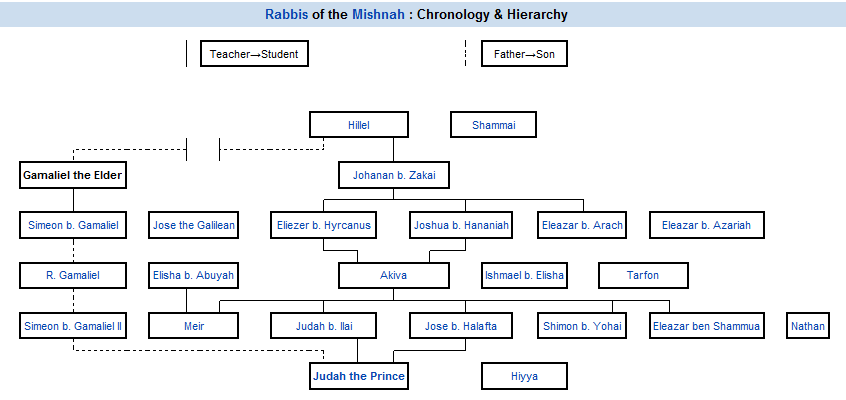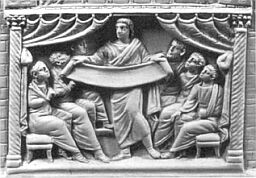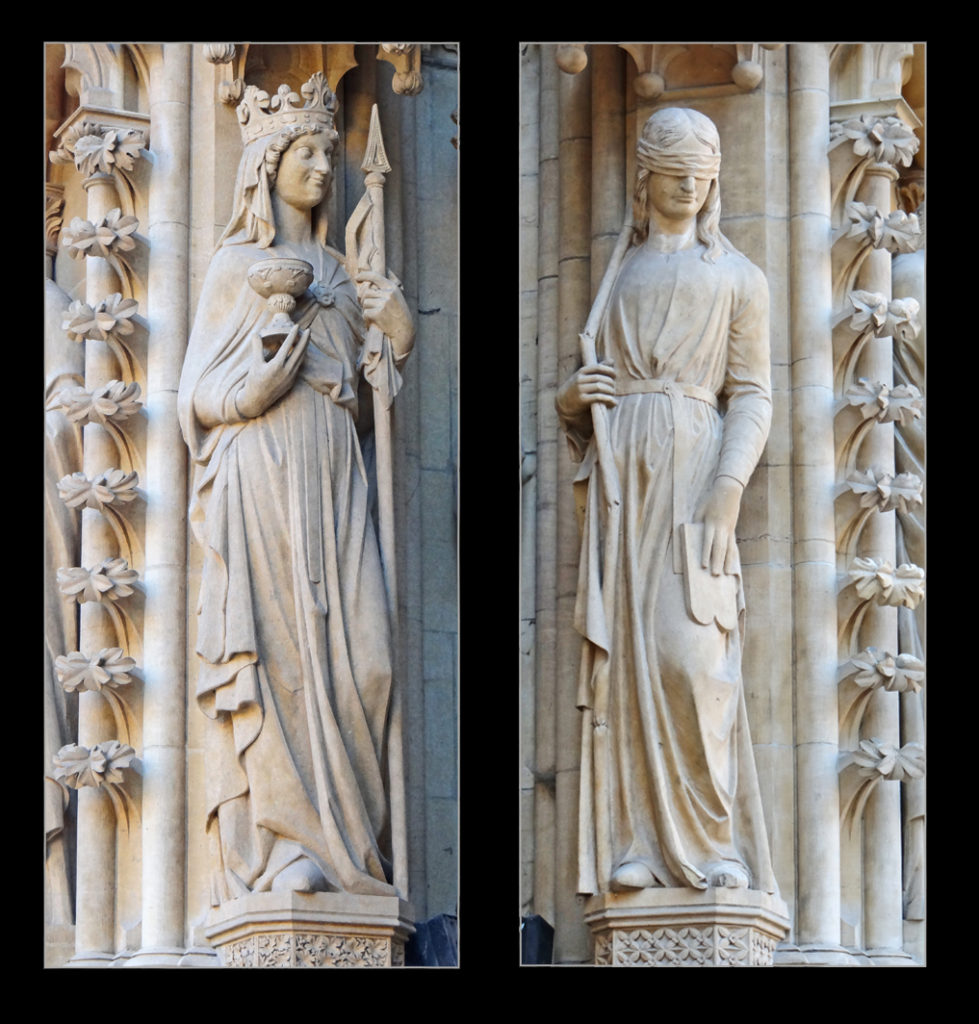
170 AD to 190 AD, Psalm 56: Foundations of Christianity.
This site was first built in French (see www.147thgeneration.net). The English translation was mainly done using « google translation ». We have tried to correct the result of this translation to avoid interpretation errors. However, it is likely that there are unsatisfactory translations, do not hesitate to communicate them to us for correction.
(for that click on this paragraph)
Summary
This generation is from the years 170 AD to 190 AD.
According to our count, this generation is the 56th generation associated with Psalm 56. It is in this Psalm 56 that we therefore find an illustration of the facts of this generation.
The destruction of the Temple and the defeat of the Bar Kokheba revolt confirm that the Jewish people must prepare for a long exile and detach themselves from their land for a very long time. For this, the Tannaïm, rabbis of the first two centuries of our era, undertook the drafting of the Mishnah (oral law). This concludes with this generation under the aegis of the last Tannaïm: Yehouda Ha-Nassi (Rabbi Judah the Prince).
The Jewish people were great, strong, and respected, but they are now far from Jerusalem, from their kingdom, and vulnerable to the host nations, especially in a Christian world that has decided to become hostile to the Jews.
Marcion, who died before this generation (160 AD), is above all the discoverer and publisher of Paul’s epistles. It is not difficult to think that he went beyond a simple job of « corrector ».
Marcion proposed to forget the tradition of Israel. For him, the Bible was obsolete. It was necessary to reject it and reject with it the Jews who claimed it as the only Scripture, but its attempt failed. In 144, Marcion is « excommunicated » from the Church of Rome.
But his victory was posthumous, as Tertullian (160/220 AD) noted in the following century: « Marcion’s heretical tradition filled the universe ». Christendom was literally mithridatized by Marcion. He precipitated the conception and establishment of the New Testament, if he is not the inventor. Marcion, if it is fought by the Great Church, pushes this one to create its own canon and to dissociate definitively from its Jewish heritage.
The Christians could have turned away definitively from the Jews. To abandon them to a religion which, never again, would be theirs. On the contrary, they will make anti-Judaism one of the constitutive elements of their own identity. Anti-Judaism will be a sign of recognition. Christians will define themselves as those who are not Jews, as those who have distinguished themselves from them, as their adversaries or rather their most intimate enemies.
Talk
Yehouda Ha-Nassi (Rabbi Judah the Prince)
At the level of the Roman Empire, this generation is straddling the reign of Marcus Aurelius (161/180) and that of Commodus (180/192).
Before becoming interested in the content of the psalm, one must first, once again examine its title.
This generation corresponds approximately to the last generation of Tanaïm.
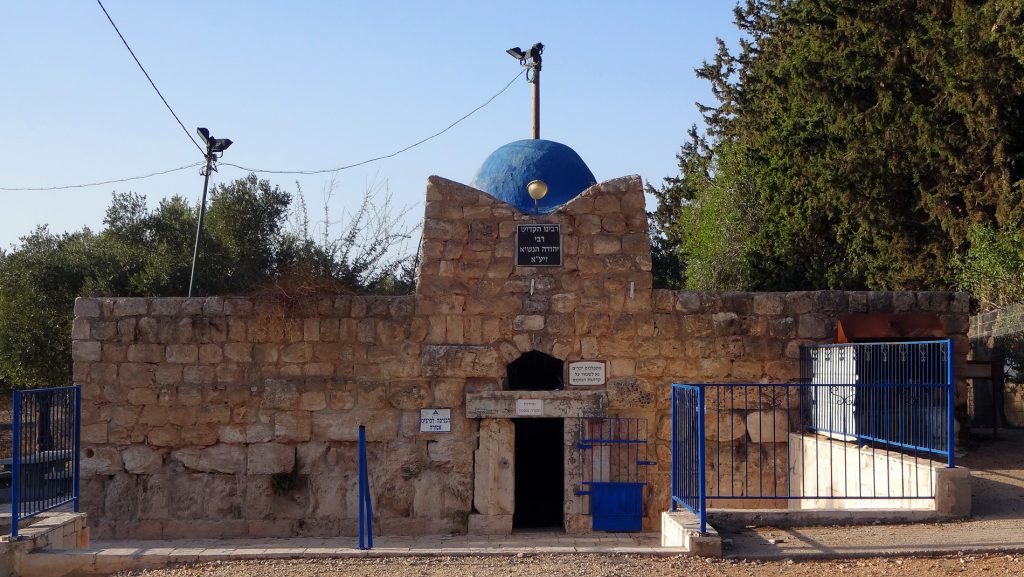
The name Tannaim is that given to the rabbis of the first two centuries of our era and concludes with the drafting of the Mishna (oral law) under the final aegis of the last Tannaim: Yehuda Ha-Nassi (Rabbi Judah the Prince) The name Tannaim is that given to the rabbis of the first two centuries of our era and concludes with the drafting of the Mishna (oral law) under the final aegis of the last Tannaim: Yehuda Ha-Nassi who presides from 170 to 200.who presides from 170 to 200.
This drafting was decided probably because the sovereignty of the Jewish people on his land became hazardous because of the rise of Rome and especially after the destruction of the Temple. The defeat of the revolt of Bar Kokheba confirms that the Jewish people must prepare for a long exile and detach themselves from their land until they finish the night.
The ban on Jews from residing in Jerusalem after the Bar Kokheba revolt, even if it is not fully followed, confirms the long exile. Even if at first the Jews can stay not too far from Judea by settling in Galilee.
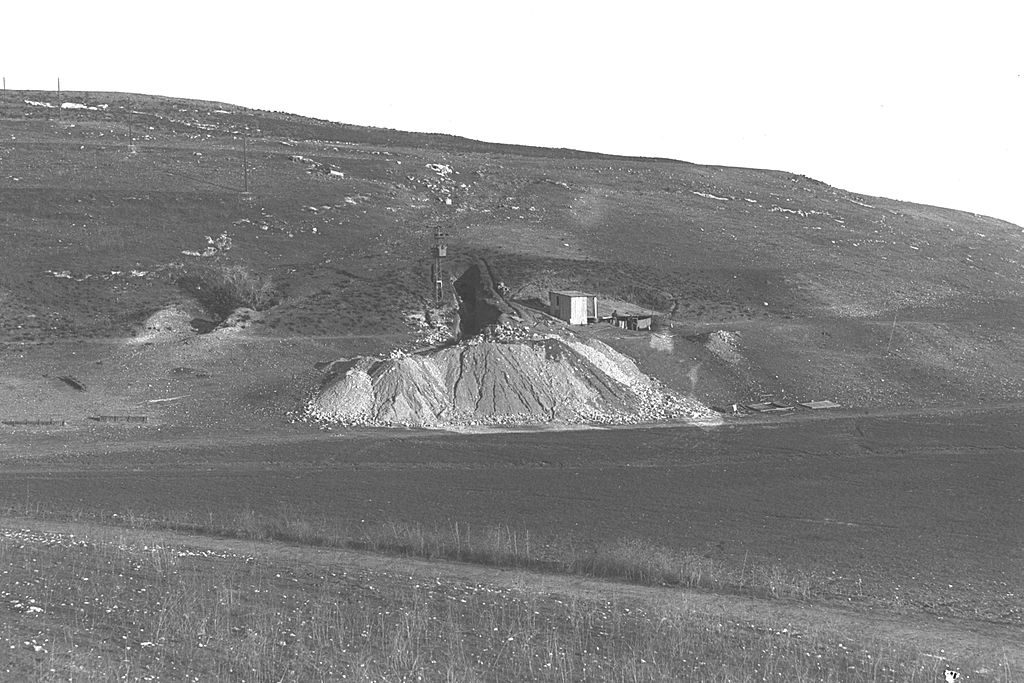
First to Usha after the revolt. After other stays, the current generation settles in Beit Chearim. Faced with this exile that begins, Jerusalem fades, and this is probably what David evokes in « The dove dumb in the distance » in the title of the psalm:

- For the conductor, on yonath elem rehokim (the dumb dove in the distance), of David a michtam, when the Philistines seized him in Gath.
The episode of Gath is in David’s flight, after he had consumed with his men the offering bread of the priests of Nob and he simulated madness with the king of Gath to be spared.
The situation David suffers is comparable to that of the Jewish people for this generation. The Jewish people were great, strong, and respected, but they are now far from Jerusalem, from their kingdom, and vulnerable to the host nations. The only solution left to the Jewish people is to show themselves harmless to these people so that they may not be exterminated by them, thinking that the Jewish people are a people stripped of its glory.
Marcion
To return to the psalm, this generation sees Christianity extend its hold and at the same time take a little more independence from Judaism.
A particular phenomenon had marked the rise of Christianity a few years before the present generation by the new theses of Marcion:
- A capital event [1], related by Epiphanius of Salamis in his treatise « Against Heresies », would have occurred in Rome in 144. Marcion is summoned by the presbyterium, the assembly of priests of Rome, without it being specified whether the bishop was there. He is asked to explain his interpretation of the parable of Jesus on the old bottles. « And no one pours new wine into old wineskins. Otherwise, the wine will burst the skins, and both the wine and the wineskins will be ruined. (- we have an interpretation of this parable with conclusions on Judaism, of course, opposed to that of Marcion – ). » The exegesis of presbyterium was of the moralistic type. The skins, the bad tree, meant humans, hardened hearts. Marcion, for his part, maintained a historical exegesis, namely that the old skins, the bad tree, were the old scriptures and the Jews. At the end of this confrontation, Marcion is excluded, or else excludes himself, and founds his own Church.
In this regard we can cite the analysis of Gérard Mordillat and Jérôme Prieur:
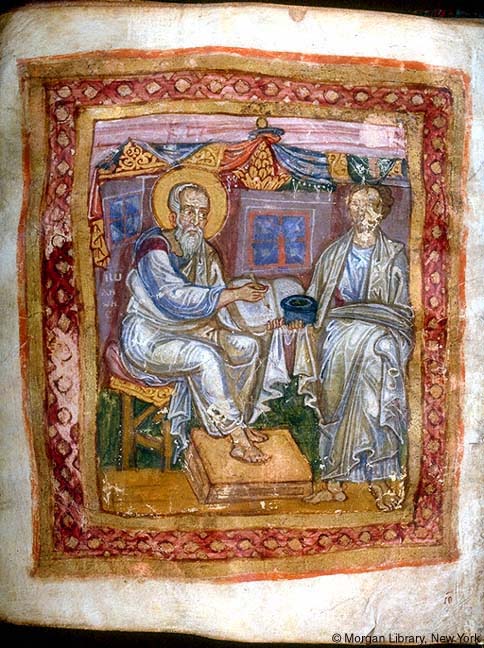
- Marcion [2] is above all the discoverer and publisher of Paul’s epistles. These letters, considered the oldest Christian documents, are ignored before the publication of the Apostle, about 130 and 140 (ten epistles that he associates with the Gospel of Luke to define his own New Testament canon). Marcion is the first dated witness. It is not difficult to think that he went beyond a simple job of « corrector ». […] In truth, no one knows – and there is no way of knowing – how Paul’s texts presented themselves before Marcion accommodated them to his theology. […] Should not one see one’s hand rather than Paul’s in the words so violently hostile to the Jews of the Judean churches in the epistle to the Thessalonians? […]
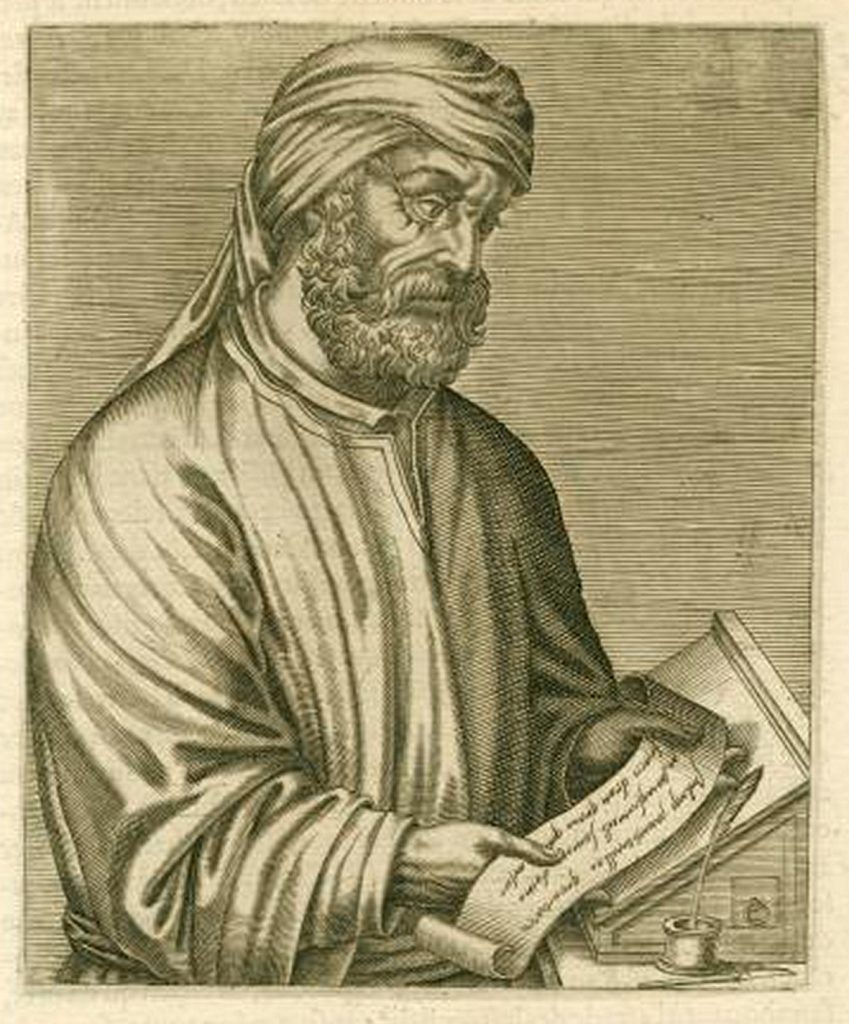
- Marcion proposed to forget the tradition of Israel. For him, the Bible was obsolete. It was necessary to reject it and reject with it the Jews who claimed it as the only Scripture, but its attempt failed. In 144, Marcion is « excommunicated » from the Church of Rome. Appointing himself as the authentic (and fortunate) successor of the Apostle Paul, he founded not only a school of thought that will continue but rival churches of the great Church. They will be solidly organized and widely implanted in the same geographical area. « Marcion’s heretical tradition filled the universe, » Tertullian said in the next century.
- Christendom was literally mithridatized by Marcion. Despite his apparent failure, the consequences of his enterprise on Christian identity have been incalculable, if only because he is indebted to him for the preservation and knowledge of the so-called « Paul’s epistles ». But also, by his desire to dissociate himself from the Hebrew Bible, by his opposition to the proliferation of Christian texts, he precipitated the conception and establishment of the New Testament, if he is not the inventor. […]
New Testament
Marcion, if it is fought by the Great Church, pushes this one to create its own canon and to dissociate definitively from its Jewish heritage:
- The [3] The [3] Christians of the second century are immediately faced with a dilemma that compels them to make a deal. And this for two reasons: one political, the other theological. Politics because in the Empire, to be religio licita, « legal religion », one had to have ancestors. If he cut himself off from his Jewish roots, Christianity cut himself off from his ancestors, and condemned himself to remain a sect without rights or privileges in the eyes of Rome. Theological because, contrary to what Marcion claimed, the New Testament project could not be to abrogate the Hebrew Bible. They must both take the consequences of their divorce from Judaism and not sacrifice the immense body of biblical references without which the Gospels and their literature would be nothing.
- Christians will therefore undertake to « deterritorialize » the entire conceptual apparatus peculiar to Judaism, to neutralize it, to make it compatible with pagan philosophy and with mythical thought. They will Hellenize him who could have remained a dark Jew of Galilee, crucified under Pontius Pilate. Thus will we make of Jesus, « son of God » among many other Jews, his only Son, the Messiah, Christ, etc. It will be necessary above all to make the New Testament the fulfillment of the Hebrew Bible, its key to reading. As Augustine puts it, the New Testament is hidden by the Old Testament, and the Old Testament is revealed by the New Testament. […]
- For Christians, Jews are no longer worthy of being the chosen people. It is in the name of this incomprehension (of the new message of Christianity), of this deafness, of this blindness that they will literally disinherit them: the Bible becomes the Old Testament, and without being abolished, it is subject to the New. Christianity overwhelms the ancestors and captures the inheritance. Where Antiochus Epiphanes and then Herod Antipas had failed, restricting ritual obligations, preferring certainty to questions, truth to questioning, dogmas to texts, Christianity invents a new form of Judaism accessible to pagans. His political, philosophical, theological genius will even dare to proclaim himself a « true Israel, » Verus Israel. […]
- After the schism, the Christians could have turned away definitively from the Jews. To abandon them to a religion which, never again, would be theirs. On the contrary, they will make anti-Judaism one of the constitutive elements of their own identity. Anti-Judaism will be a sign of recognition. Christians will define themselves as those who are not Jews, as those who have distinguished themselves from them, as their adversaries or rather their most intimate enemies.
To this generation Christians define a New Testament canon breaking with the Old, or at least with its classical interpretation.
Schism
This is the beginning of schism with Judaism, Christianity is no longer a variant of Judaism but a new religion to supplant the old.
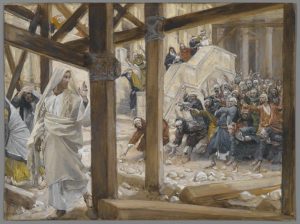
The Jews, allies of yesterday, become the enemies, those who betrayed Christ.
These are the seeds of Christian anti-Semitism that will lead for centuries massacres, pogroms, humiliations for Jews living on Christian soil.
This is all the more serious as Christianity is preparing through Rome to become a universal religion.
It is this danger to the Jewish people that represents the new philosophical and theological foundations of Christianity that are established in this generation that David describes in his psalm:

- Be gracious to me, O God, because men yearn to swallow me; all day long the warrior oppresses me.
- Those who eye me have yearned to swallow me all day long, for many fight against me, O Most High.
- In the aftermath of the Bar Kokheba revolt, the choice of Christians to sacrifice the Jews and seduce the Gentiles will naturally increase the number of Israel’s enemies.
- The day I fear, I will hope to You.
- With God, I will praise His word; in God I trusted, I will not fear. What can flesh do to me?
- The desire to impose Jesus as Christ does not question the Jewish faith. This new God (or assimilated as such) remains a man, a sage. It is not this creation by Christian thinkers that calls into question the entire divinity and power of God, that of the Jewish Bible.
- All day long, my words grieve [me]; all their thoughts about me are for evil.
- They lodge, they hide, they watch my steps, when they hope for my life.
- The advent of Christianity in this generation is to the detriment of the condition of the Jews for centuries to come.
- For iniquity, they expect rescue. Bring down nations with anger, O God.
- You counted my wanderings; place my tears in Your flask. Is it not in Your accounting?
- Unfortunately this redefinition of the message of Jesus will provoke over the centuries many « tears » from the Jewish people.
- Then my enemies will retreat on the day that I call. Thereby I will know that I have a God.
- With God[‘s justice] I will praise a word; with the Lord[‘s kindness] I will praise a word.
- In God I trusted, I will not fear. What can man do to me?
- Upon me, O God, are Your vows; I will pay thanksgiving offerings to You.
- For You saved my soul from death, even my feet from stumbling, to walk before God in the light of life.
- Despite this dark future, David reiterates in the name of the Jewish people, his faithfulness to God, his confidence in the final restoration of the people of Israel.

[1] The early times of the Church (collection of texts) by Marie Françoise Baslez / Text 41: « Marcion and the radical break » by Michel Tardieu (p. Marcion refers to the parable of the seeps at Matthew Chapter 9, verse 17 as well as Mark Chapter 2, verse 22 and Luke Chapter 5, verse 37. For the evil tree he refers to Luke Chapter 6, verse 43. (French: « Les premiers temps de l’Église (recueil de textes) de Marie Françoise Baslez/ Texte 41 : « Marcion et la rupture radicale » de Michel Tardieu (p. 403) ).
[2] Gérard Mordillat and Jérôme Prieur / Jesus against Jesus / Chapter « delivered » (French: « Jésus contre Jésus »/Chapitre « livré » (p 372/373/374) ).
[3] Gérard Mordillat and Jérôme Prieur / Jesus against Jesus / Chapter « delivered » (French: « Jésus contre Jésus »/Chapitre « livré » (p 375/376/378/380) ).

